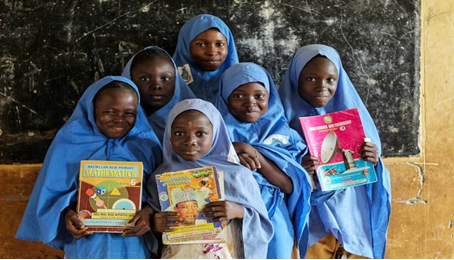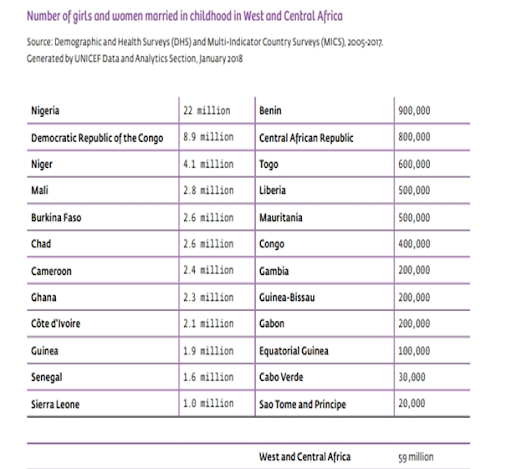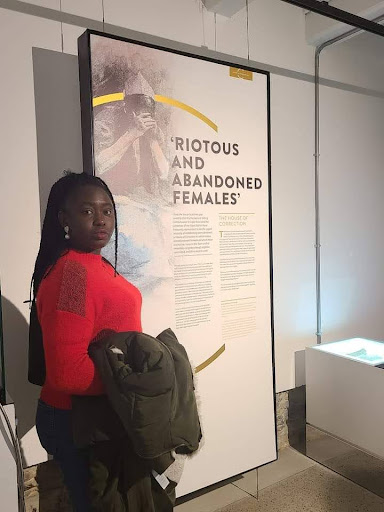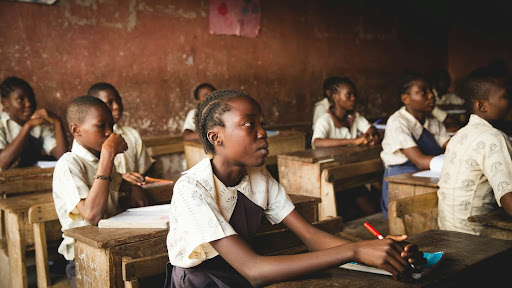Groundbreaking Workshop on AI and Technology-Facilitated Gender-Based Violence at AWiM24
Trending
Sunday June 1, 2025
Trending

PHOTO CREDIT: Fatima Yusuf on unsplash
Education is a powerful tool that empowers individuals from diverse backgrounds to pursue their dreams and aspirations while promoting social cohesion and reducing inequality. Through this, education fosters a sense of responsibility, leading to a reduction in sexual violence and child marriage
According to research conducted by UNICEF, in 2017, Child marriage in West and Central Africa is one of the biggest challenges in the region and has enormous adverse effects on education, health, including sexual and reproductive health, and on the overall development of adolescents and youth. West and Central Africa has the highest rate of child marriage with Nigeria topping the chat at an estimated 22 million child brides. This represents 40 percent of all child brides in the region The prevalence of child marriage in West and Central Africa is 41 percent meaning that four out of ten girls and young women – nearly 60 million – were married before the age of 18. This research done by UNICEF also provides the percentage of women aged 20 to 24 years who were married or in union by age 15 and by age 18, in West and Central Africa

Source: Demographic and Health Surveys (DHS) and Multi-Indicator Country Surveys (MICS), 2005-2017. Generated by UNICEF Data and Analytics Section, January 2018
Education has a profound impact on women’s lives, enhancing their employment opportunities and socio-economic status. It also influences their choices in partner selection, and family formation, and empowers them to respond effectively to intimate partner violence.
Empowering Survivors of Gender-Based Violence Through Education
Gender-based violence (GBV) is a pervasive issue affecting millions worldwide. Education empowers survivors, promotes gender equality, and supports legal rights and protections.

Tolulope Adeoti, Lawyer, Gender-based-Violence (GBV) Advocate and Founder Ladies Connect Intiative
Barrister Tolulope Adeoti, a GBV advocate and founder of Ladies Connect Intuitive, notes that despite having several international human rights frameworks such as the Universal Declaration of Human Rights, African Charter on Human and Peoples’ Rights, and CEDAW, that emphasis equal access to education and protection from discrimination and violence, women and girls still suffer from GBV. Access to education is crucial for supporting the rights of women and girls affected by GBV in Africa. Education helps them overcome the effects of GBV and claim their rights. It empowers individuals to understand their experiences, recognise various forms of GBV, and seek protection. “If people are not aware of the fact that there are laws that makes gender-based violence a crime, while the perpetrator might not see it as as a crime especially in a highly patriarchal society like Nigeria, the victims also won’t believe they can get the help they need” she explained
She pointed out that education significantly impacts the legal rights and protections available to survivors of GBV. Through education, survivors can comprehend their rights, access available resources, and report incidents to relevant institutions. Without education, survivors may remain unaware of their options, struggle to report GBV and feel isolated. She pointed out that education plays a vital role in preventing GBV and promoting gender equality. It raises awareness about GBV, enabling individuals to recognise their rights and understand the impact of GBV. Education highlights the importance of equal access to resources, opportunities, and protection under the law, dispelling misconceptions and promoting inclusivity. In addition, Ms. Adeoti identified a lack of awareness about existing laws and limited enforcement as the key legal barrier. To address this, she suggested that sensitisation and awareness programs can reduce these barriers. “Sensitization will create a kind of awareness that helps enforcement and that will stop the act of ruling gender-based violence as “it’s a family matter, go and settle it “and it will stop the act of treating criminal cases like civil” According to her, legal systems and policies can support education initiatives for survivors of GBV by implementing policies that promote gender equality and strengthening laws and policies that criminalise GBV.
For Dr Rachel Fiedler, a GBV advocate, from Malawi, who holds a Doctor of Philosophy in Gender, Religion, and Development, “there is a need to include GBV issues in the curriculum beginning from the early stage, i.e., primary, or upgrade the curriculum to include current GBV elements which are critical for the current generations.” As an Associate Professor at Mzuzu University in Malawi and dedicated advocate for women’s and human rights, Dr Fielder’s work focuses on the intersection of education and economic security for girls and women. She emphasised that girls from economically secure backgrounds find it easier to appreciate the need for further education. But despite advocacy efforts and policies promoting girls’ and women’s education, the economic situation significantly affects their ability to access education opportunities. “For poorer girls and women, economic security is equally important as education. They may choose marriage over education if it provides social and economic benefits. Economic security allows them to make informed decisions about violence”. She noted that rescuing them from violent marriages is pointless if their needs currently met by their partners are not adequately addressed by those rescuing them
“Economic security is as important as getting educated” she explained
As a powerful tool for empowering survivors of GBV, education promotes gender equality, and supports legal rights and protection. According to an article by Rights to education organisation: ‘’Education is not a privilege. It is a human right. Education as a human right means:

Photo Credit: Doug Linstedt on Unspalsh.com
Legal systems and policies must support education initiatives, address legal barriers, and implement international human rights frameworks to create a supportive environment for survivors to access education and rebuild their lives.
We’re not gonna spam. We’ll try at least.

Copyright 2020. African Women In Media
Copyright 2020. African Women In Media
Recent Comments